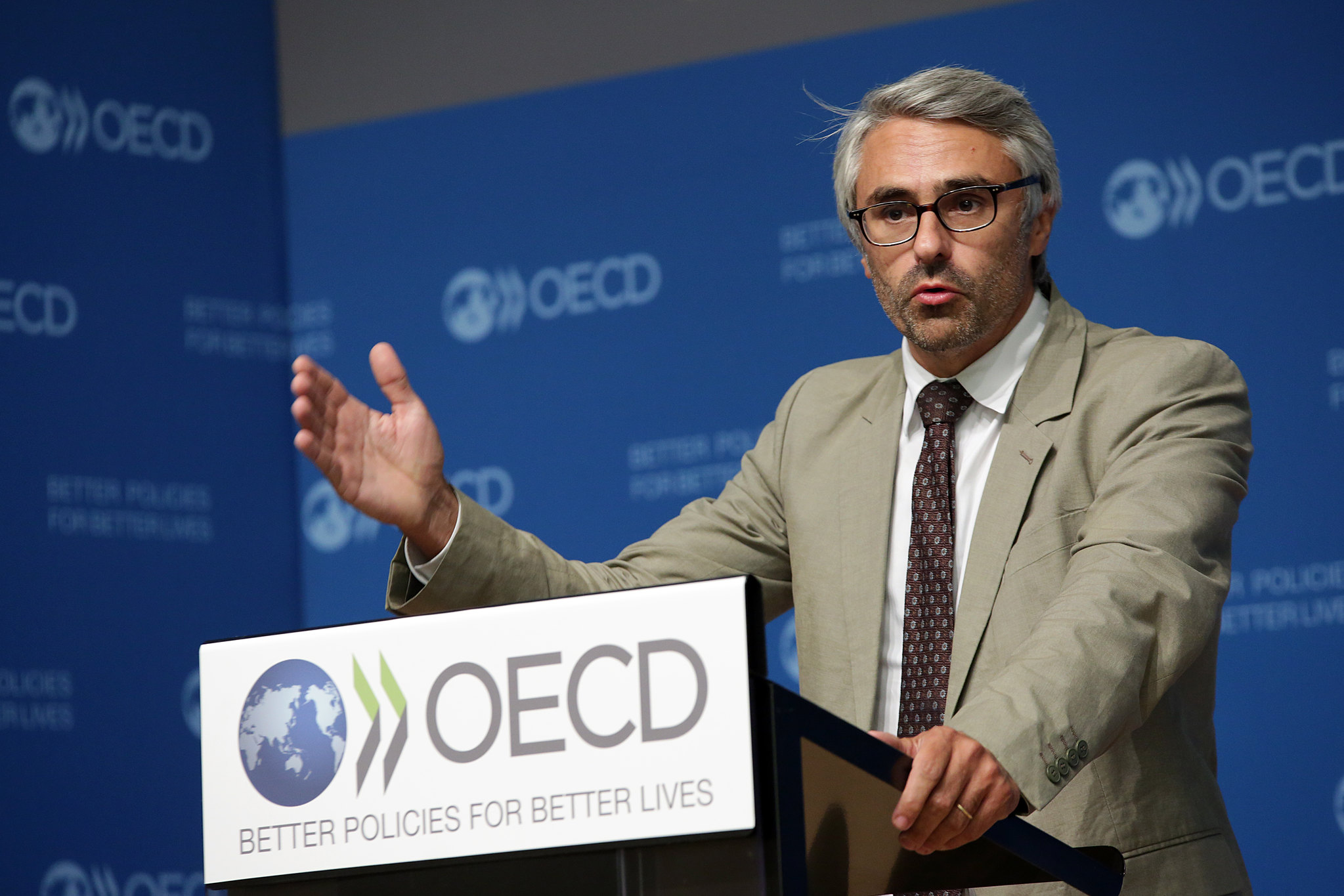The U.S. government has proposed a minimum international corporate tax rate. This proposal has some support among countries, but it does not appeal to tax authorities. There is still no deal in sight.
May 12, 2021 – 15:57 p.m.
Pascal St.-Amans, director of the OECD Center for Fiscal Policy. Photo: OECDtax / Flickr
A few weeks ago, there was significant progress in the discussion of reforms in the international tax system. Joe Biden’s U.S. government has proposed a global definition of the minimum corporate tax rate, in line with what has recently been discussed between OECD countries. Biden’s proposal calls for an effective rate of 21%, with the goal of diverting profits to tax havens and putting a brake on the bottom line in business taxation.
Defenders of the effective fight against tax evasion and exemption received the news with enthusiasm. However, there are still significant differences in this proposal. The value put forward by the United States is higher than initially discussed at the OECD (rate 12.5%), which makes it difficult to reach an agreement with countries with an economic growth model based on the attraction of foreign capital. (Or even zero) tax rates. This is the case in the European Union, Ireland, the Netherlands, Luxembourg, Cyprus or Malta.
However, the technical details of the proposal, which will be discussed by the OECD by July, are not yet known. The truth is that these will be crucial in determining whether countries can continue to attract foreign capital through concessions, benefits or other means to avoid the IRC’s general rate. Take the case of Apple in Ireland through aggressive tax planning schemes, the overall IRC rate is 12.5 per cent, but in 2014 the multinational gave an effective rate of 0.005 per cent. The devil, as always, is in the details.
An agreement on the OECD / G20 Inclusive Framework for BEPS is expected to be reached by early July. [Base Erosion and Profit Shifting]”, A plan to combat aggressive tax planning, such as the elimination of the tax base or the transfer of profits. The plan is divided into two pillars: the first is about reforming the international tax system to respond to the digitization of economic activity and ensuring that digital multinationals pay taxes where they create value, and the second involves defining an effective minimum rate.
Germany, France and the Netherlands have already agreed to support the government’s proposal. However, Ireland seems to be opposed, which could hamper an international agreement. Quoted by the publicIrish Finance Minister Paschal Donohue has called for an agreement “that includes Ireland at 12.5%” and that it will not end tax competition between countries. Other jurisdictions where the tax is too low or zero are expected to oppose the definition of an effective minimum rate.
But the truth is that the terms of this debate are not the same as they have been for the past few decades. Pascal St.-Amans, Director, OECD Center for Fiscal Policy and Administration; It says “The time has come for countries to do everything in monetary policy.” Saint-Amans considers, “The idea that we can keep small countries without retaliation in their financial strategies is an idea of the past” because the rest of the world will no longer accept it, and should go for retaliation. In addition, OECD economists say that financial peace is good for small and open economies.
Should inheritance be taxed to reduce inequality?
Parallel to the discussion on taxation in the corporate sector, there have been discussions on other proposals that would allow states to increase tax revenue and combat social inequality. This is where inheritance tax is levied, Recommended by the OECD In a report released this week, as reported by Journal de Negatius. They believe that the crisis caused by the pandemic is causing a lot of trouble for governments, and that inheritance taxes and the contribution of higher values play a “relevant role in this context.”
It should be noted that this type of tax has multiple consequences: on the one hand, it discourages the accumulation of “trapped” wealth, which may lead to its reinvestment; On the other hand, it has a role to play in combating inequality, and is “an important tool for strengthening equal opportunities and reducing the concentration of wealth”, as the OECD points out. As the crisis puts pressure on countries’ public accounts, it is expected that tax levels will change in the coming years.

Tv fanatic. Amateur food maven. Devoted webaholic. Travel lover. Entrepreneur. Evil writer. Beer guru.



